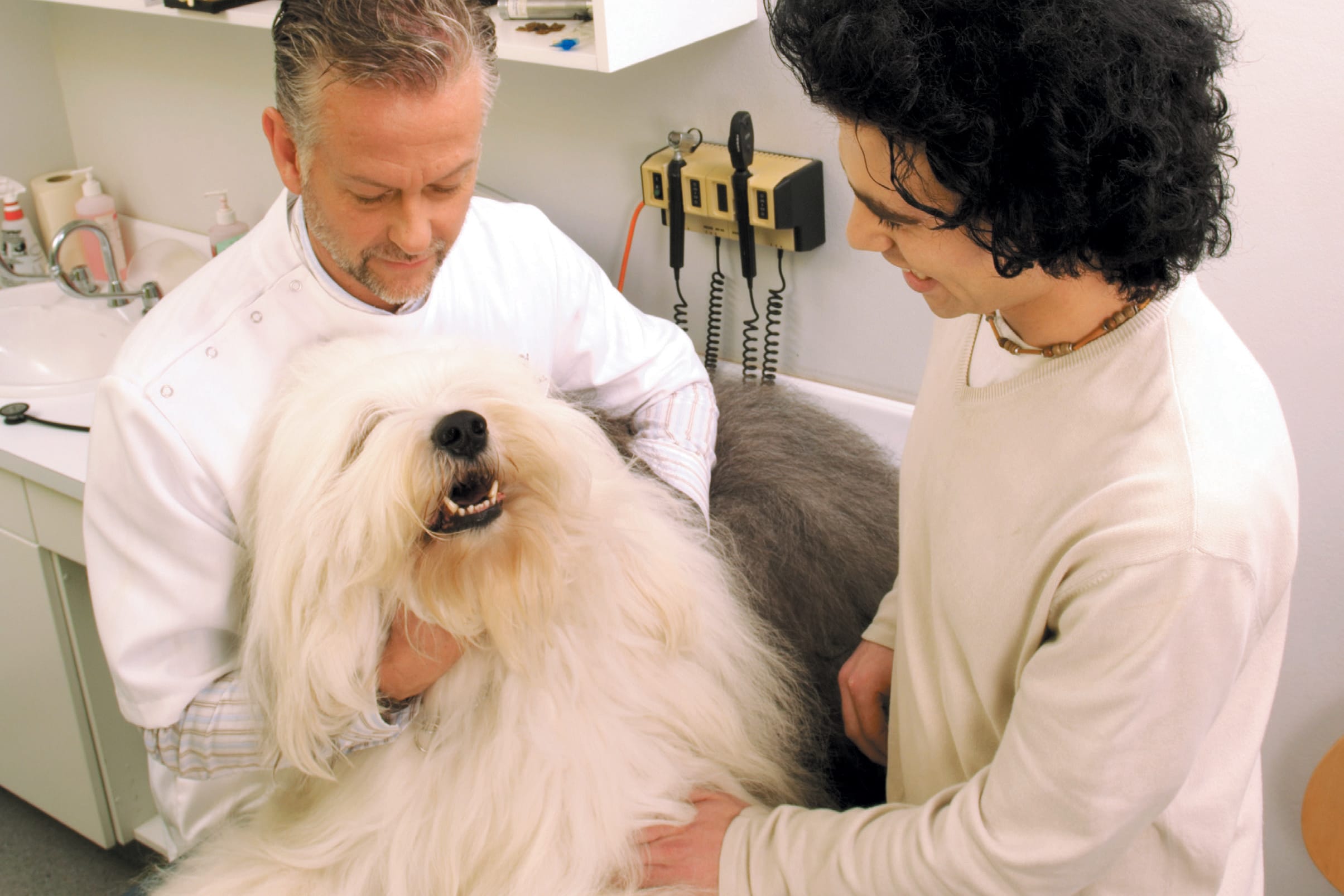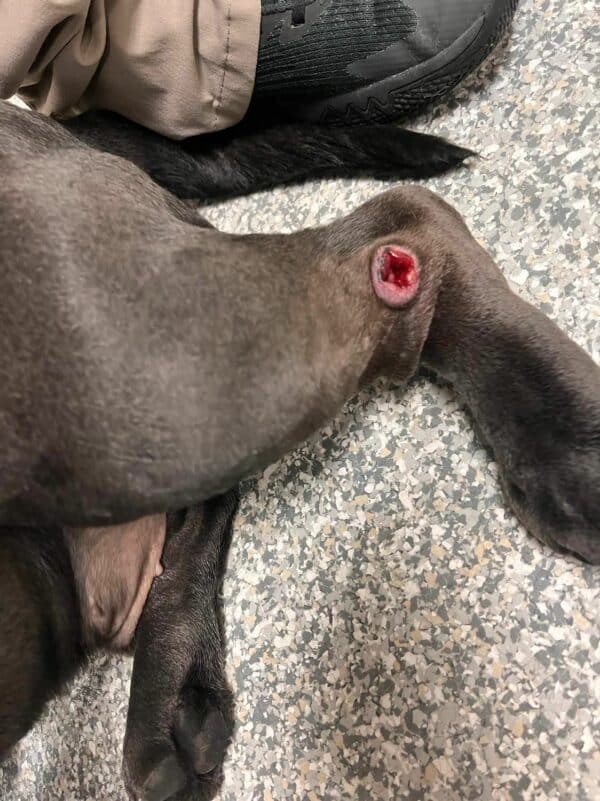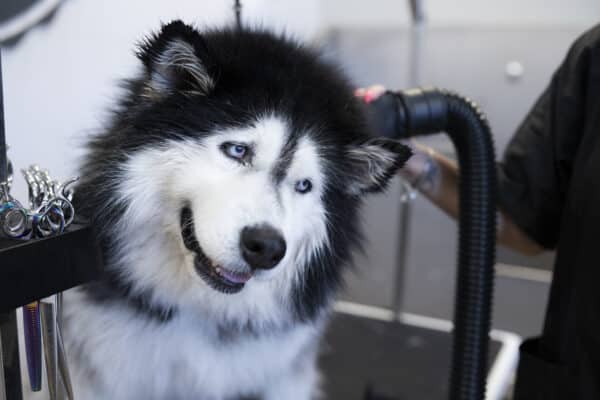One night when Carol Bryant prepared to brush the teeth of her Cocker Spaniel, she discovered bleeding and splotchy-colored gums. Scared and worried, she immediately took Dexter to the nearest veterinary emergency room. At the animal hospital, veterinarians confirmed the diagnosis: an autoimmune disease called Immune-Mediated Thrombocytopenia (IMT) that attacks the blood-clotting platelets.
“My veterinarians told me that had I waited until the morning, Dexter would have bled out internally,” says Carol, of Forty Fort, Pennsylvania. “IMT is a silent killer. You have to act fast or it could cost your dog his life.” IMT belongs to the autoimmune disease family headlined by lupus, hypothyroidism and immune-mediated hemolytic anemia (IMHA). In various ways, autoimmune disease in dogs causes the body’s immune system to attack its tissues and organs. Some forms wipe out red blood cells and platelets.
“Autoimmune diseases are more common than people realize and can be difficult to identify and challenging to treat,” says Robert Runde, VMD, a veterinary internal medicine specialist who treated Dexter at the North East Referral Animal Hospital in Wilkes-Barre, Pennsylvania. “And often a dog with one autoimmune disease may have multiple other immune-mediated conditions.”
The 4 main causes of autoimmune disease in dogs

Genetics, disease-carrying ticks, sulfa antibiotic medications and vaccine reactions are among identified culprits that can trigger autoimmune disease in dogs. Veterinarians do not know why, but breeds like Cocker Spaniels, German Shepherd Dogs, Poodles, Collies, Beagles, Irish Setters, Afghan Hounds, Doberman Pinschers and Old English Sheepdogs are most at risk.
Ticks are also blamed, but it can be tricky to definitely identify a disease-borne tick for triggering an autoimmune disease in a dog, because it can take weeks, even months, to surface. “That’s why it is always important to thoroughly check a dog from head to tail, especially behind his ears and between his toes for ticks after taking hikes,” Dr. Runde says. “Your dog should be on a tick preventive. I’ve seen dogs acting normal one day and the next day not able to walk because of a tick-borne disease.”
Antibiotics known as sulfa drugs can also trigger autoimmune reactions in some dogs. These medications are prescribed to treat bacterial, respiratory and urinary infections as well as bowel inflammation and types of gastrointestinal conditions. “Because sulfa drugs can be a culprit, I don’t use them unless absolutely necessary,” Dr. Runde says.
Controversy surrounds another possible cause behind the emergence of autoimmune diseases in dogs — vaccination booster injections. “Vaccines stimulate the immune system, and if a dog has an autoimmune disease, the vaccines can adversely stimulate the dog’s immune system,” Dr. Runde says. “Once we know a dog has an immune-mediated disease, it is best to keep vaccines to a minimum or to stop them. Instead, the dog can get titer tested.”
Titer testing involves a veterinarian drawing a blood sample from a dog and checking it for levels of antibodies to protect against canine diseases, including parvovirus, distemper, rabies and adenovirus.
Kathryn Primm, DVM, owner and chief veterinarian at Applebrook Animal Hospital in Ooltewah, Tennessee, adds, “Vaccine protocols are no longer a ‘one size fits all’ plan. It is critical that pet owners work with their own veterinarians to decide which vaccines are most appropriate for their pets.”
Tricks to identify autoimmune disease in dogs
Acting like detectives, veterinarians must often seek detailed medical histories, analyze blood and urine samples, take biopsy samples and perform X-rays, ultrasounds and MRIs (magnetic resonance imaging) to determine if the dog has an autoimmune disease — or was reacting to eating swallowed pennies or an infection or perhaps an obstruction in his intestinal tract.
“Identifying and managing autoimmune diseases is an involved process, and if you skip one of the steps, you could miss something important,” Dr. Runde says.
Dr. Runde has also seen Dexter’s canine nephew named Sonny, whose pet parent is Jen Angradi, of Duryea, Pennsylvania. During the summer, Jen noticed that her usually calm dog was panting excessively on the sofa. She then lifted his muzzle to discover that his gums were nearly completely white. She rushed him to the animal hospital.
“Sonny spent three days at the animal hospital,” Jen says. “The first couple days were tough. I felt like I was on an emotional roller coaster ride. They treated Sonny, and now he is on prednisone as well as a medication to prevent blood clots, and folic acid to promote healthy red blood cells. He is doing much better now.”
Canine lupus
Ironically, one of the best-known autoimmune diseases in people is also one of the rarest in dogs — lupus. The two types of canine lupus are systemic lupus erythematosus (SLE) and discoid lupus erythematosus (DLE).
SLE can strike any part of the body. Common symptoms displayed are fever, hair loss, lameness, muscle stiffness, and sores or lesions. In contrast, DLE affects a dog’s skin, particularly around the nose and thus has earned the nickname, “Collie nose.” Dogs with DLE display ulcers, sores or crusty skin. Sadly, there is no cure for either type of lupus.
Treatment plans are customized for an individual dog’s symptoms. Common treatments include the use of steroids, antibiotics, omega-3 fatty acids and even chemotherapy. “There aren’t that many cases of lupus in dogs,” Dr. Runde says. “In dogs, lupus can cause multi-organ failure.” With autoimmune diseases, relapses can and do occur. You can help your dog by ensuring he gets regular and thorough health examinations and reporting any changes in his activity level or physical condition to your veterinarian promptly.
A great health ally for veterinarians like Dr. Runde is the professional dog groomer. “Often a person will take his dog to the groomers and, after shaving the dog, the groomer will notice perhaps bruised skin, bleeding gums or bloody diarrhea,” he says. “We’ve treated many dogs for autoimmune diseases detected by groomers.”
Treatment plans for autoimmune disease in dogs

Treatment plans must be tailored to the specific needs of each dog dealing with an autoimmune disease. “Immune-mediated diseases are challenging, and dog owners should understand that it is a lifelong issue that is managed and not cured, but that does not mean there is no hope,” Dr. Primm says. “Following the veterinarian’s advice and care plan plus being an engaged caregiver can make all the difference.”
Carol and Jen vow to pay close attention to their dogs Dexter and Sonny and to report any health changes at the onset. “When Dexter arrived at the hospital, he had no platelets, but he was still wagging his tail. He was given essentially a canine cocktail of immune suppressants that saved his life,” says Carol, who pens a popular pet blog called Fidose Of Reality.
“My message to others is to know what’s normal in your dog. Take 10 minutes a day to really check your dog, including the gums. If you find anything wrong, act fast. You just may save your dog’s life.
Facebook support groups for autoimmune disease in dogs
More pet parents, veterinarians and pet professionals are sharing information about autoimmune disease in dogs through social media. Here is a sampling of some Facebook support groups for people dealing with autoimmune disease in dogs:
- Canine Lupus – Canine Lupus Support & Info/Find a Cure: facebook.com/CanineLupusSupportAndInfoFindACure
- Immune-Mediated Thombocytopenia (IMT) Canine Immune Disorders: facebook.com/groups/ImmMediatedThrombocytopeniaCanineImmuneDisorders
- Immune-Mediated Hemolytic Anemia in Dogs (IMHA): facebook.com/groups/6228146980/about
Read more about dog health and care on Dogster.com:
- Cushing’s Disease in Dogs — Signs, Diagnosis and Treatment
- What to Know About Inflammatory Bowel Disease in Dogs
- Liver Disease in Dogs: Symptoms, Causes and Treatments
Editor’s note: This article first appeared in Dogster magazine. Have you seen the new Dogster print magazine in stores? Or in the waiting room of your vet’s office? Subscribe now to get Dogster magazine delivered straight to you!
About the author: Arden Moore, The Pet Health and Safety Coach™, is a pet behavior consultant, master certified pet first aid instructor, author and host of the Oh Behave Show on Pet Life Radio. Learn more at ardenmoore.com.
Featured Image Credit: Dean Golja | Getty Images.





